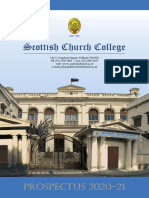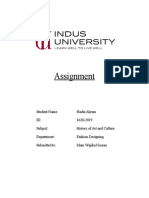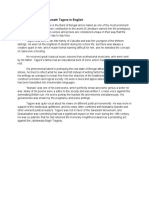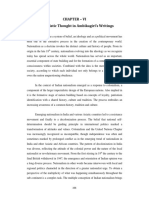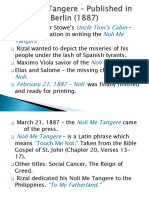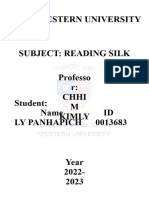0% found this document useful (0 votes)
3K views9 pagesHumanism and Logic A1 Set 2 Solved Assignment
Vaikom Muhammad Basheer's short story 'Oru Manushyan' explores themes of humanity and kindness through the experiences of a Malayali man in a foreign city who faces humiliation after losing his money. The unexpected act of kindness from a stranger, who admits to being a thief, challenges conventional notions of morality and emphasizes the complexity of human nature. The story serves as a poignant reminder of the enduring power of empathy in an indifferent world, highlighting that true humanity lies in the courage to act kindly in critical moments.
Uploaded by
mizriya20Copyright
© © All Rights Reserved
We take content rights seriously. If you suspect this is your content, claim it here.
Available Formats
Download as PDF, TXT or read online on Scribd
0% found this document useful (0 votes)
3K views9 pagesHumanism and Logic A1 Set 2 Solved Assignment
Vaikom Muhammad Basheer's short story 'Oru Manushyan' explores themes of humanity and kindness through the experiences of a Malayali man in a foreign city who faces humiliation after losing his money. The unexpected act of kindness from a stranger, who admits to being a thief, challenges conventional notions of morality and emphasizes the complexity of human nature. The story serves as a poignant reminder of the enduring power of empathy in an indifferent world, highlighting that true humanity lies in the courage to act kindly in critical moments.
Uploaded by
mizriya20Copyright
© © All Rights Reserved
We take content rights seriously. If you suspect this is your content, claim it here.
Available Formats
Download as PDF, TXT or read online on Scribd
/ 9












